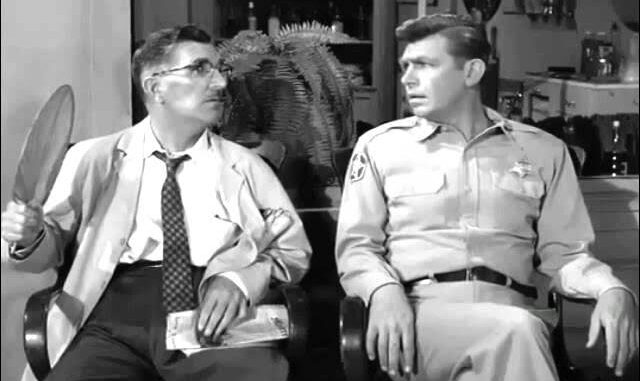
The grand stage of public life often demands a voice, a presence, a torrent of words to fill the airwaves and headline the news. Yet, history, in its delightful paradox, offers us figures who defied this expectation, proving the varied power of silence and speech. Among them stand two starkly contrasting figures, one an accidental president, the other a beloved curmudgeon of television: Calvin Coolidge, who famously said little, and Andy Rooney, who said much – and often. Their contrasting approaches to communication offer a profound illustration of how influence, connection, and legacy can be forged not just by what is uttered, but also by what is withheld.
Coolidge Did Not Say Much. Indeed, "Silent Cal" became a moniker almost as famous as his presidency. Thrust into the White House by the sudden death of Warren G. Harding, Coolidge cultivated an aura of laconic reserve that was both perplexing and, for many, reassuring. His silence was not born of timidity or ignorance, but rather a deliberate and deeply ingrained philosophy. In a post-World War I America yearning for normalcy and stability, Coolidge’s quietude projected a sense of calm, an unshakeable stoicism amidst the booming Jazz Age. He believed that the less a president spoke, the less likely he was to err, to mislead, or to inflame.
Anecdotes abound, painting a vivid picture of this presidential reticence. There’s the famous dinner party story, where a socialite, boasting she had bet she could get more than two words out of him, was met with his dry retort: “You lose.” His famous declaration, “I do not choose to run for president in 1928,” delivered on a small slip of paper to a waiting press, sent shockwaves not just for its content but for its utter brevity, a characteristic Coolidge understatement. His speeches, when they came, were often brief, meticulously crafted, and delivered in a flat, unassuming tone. His policy of minimal government intervention perfectly mirrored his minimalist rhetoric. He was a still pond, deep and reflective, inspiring trust not through impassioned speeches but through an almost palpable quiet strength that implied steadfastness and prudence. His silence became his brand, a symbol of an era that valued stability over spectacle, prudence over pronouncements.
But Andy Sure Did. Contrast this with the beloved, perpetually bewildered figure of Andy Rooney, whose 60 Minutes commentaries became a national institution. For decades, Americans tuned in to hear Rooney ruminate, complain, and question the minutiae of modern life. Andy didn't just say a lot; he said everything that popped into his head, often beginning with a quizzical "Did you ever notice…?" or "Why is it that…?" His was a voice of exasperated common sense, a curmudgeonly oracle dissecting the absurdities of packaging, the frustration of tangled cords, the illogicality of bureaucracy, or the baffling nature of human behavior.
Rooney's genius lay in his unfiltered volubility. He wasn’t delivering grand pronouncements or policy statements; he was having a conversation with millions, giving voice to the collective groan of everyday annoyances. He articulated the unspoken thoughts of the average American, validating their petty frustrations and bringing a shared, knowing smile. His segments were a masterclass in observational humor and relatable grievance, delivered with a distinctive gravelly voice and a perpetual look of mild disbelief. He didn't just report the news; he provided the exasperated, human commentary that followed, becoming a national sounding board. His "saying much" was his purpose, his brand, his way of connecting with a public hungry for authenticity and a voice that mirrored their own internal monologue.
The illustrative power of Coolidge and Rooney lies in their antithetical approaches to public communication. Coolidge wielded silence as a tool of governance and reassurance, a deliberate choice to project stability and avoid missteps in a time of national rebuilding. His power lay in his implied wisdom, his understated control, his almost monastic refusal to engage in the political clamor. His silence was a form of dignity, a barrier that reinforced his presidential authority.
Rooney, conversely, utilized volubility as a bridge to connection, a way to forge intimacy with a vast audience. His power came from his relentless questioning, his relatable complaints, his willingness to be the collective voice of mundane frustration. He tore down barriers, inviting viewers into his mind, sharing his bemusement and annoyance with the world as it was. His speaking much was a form of empathy, a shared commiseration that made him feel like a trusted, if slightly grumpy, friend.
Ultimately, both Coolidge and Rooney, through their profoundly different communication styles, achieved remarkable public impact. Coolidge'’s legacy is one of steady, unglamorous leadership, his quietude a testament to the power of dignified restraint. Rooney’s legacy is one of incisive, relatable commentary, his garrulousness a testament to the power of shared observation and authentic expression. They stand as enduring illustrations that in the intricate dance of public life, influence is not solely measured by the decibel level of one’s pronouncements. Sometimes, the most profound statements are found in what is unsaid, and sometimes, the most resonant connections are forged in the delightful, opinionated stream of an honest, questioning voice.